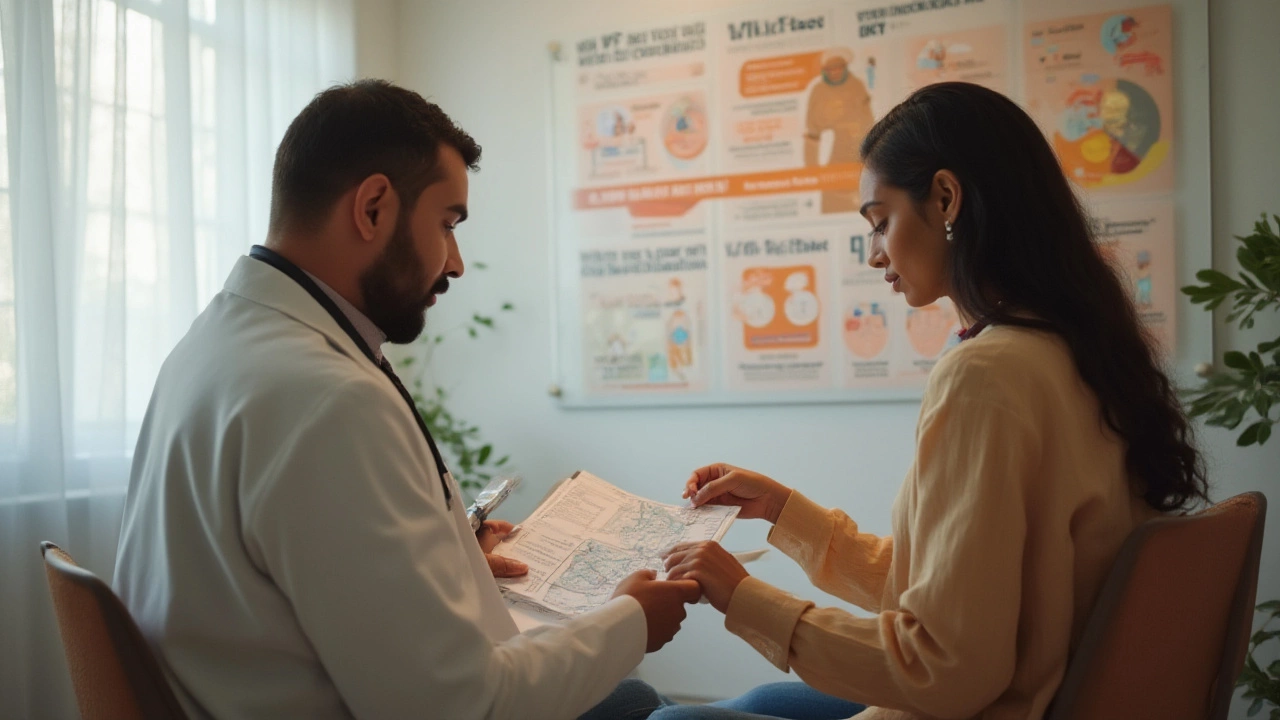IVF Complications: What to Expect and How to Handle Them
If you’re planning an IVF cycle, it’s normal to wonder about the possible hiccups. Knowing the most common complications helps you spot issues early and take action. Below you’ll find straight‑forward info on what can happen and simple steps to keep things under control.
Common IVF Complications
Ovarian hyperstimulation syndrome (OHSS) is the big one. It occurs when the ovaries react strongly to fertility drugs, causing swollen ovaries, abdominal pain, and sometimes nausea or vomiting. Mild cases feel like a bloated stomach and go away on their own. Severe OHSS can lead to rapid weight gain, shortness of breath, and even blood clots – you’ll need a doctor right away.
Egg retrieval pain is another frequent complaint. The needle used to collect eggs can cause cramping or a dull ache for a few days. Over‑the‑counter pain relievers usually do the trick, but if the pain gets worse or you see heavy bleeding, call your clinic.
Implantation bleeding sometimes confuses couples with a light pink or brown spotting after the embryo transfer. It’s usually harmless, but if it turns heavy or is paired with severe cramps, get checked.
Multiple pregnancies are more likely with IVF, especially if several embryos are transferred. Carrying twins or triplets raises the risk of preterm birth and can strain your body. Discuss with your doctor how many embryos are best for your situation.
Infection at the retrieval site or after embryo transfer is rare but possible. Look out for fever, foul discharge, or growing pain. Early antibiotics can prevent a bigger problem.
Managing and Reducing Risks
First, follow your clinic’s medication schedule to the letter. Skipping doses or taking extra pills can trigger OHSS or lower your chances of success.
Stay hydrated. Drinking plenty of water helps your kidneys flush excess hormones, which can lessen OHSS severity.
Ask for a “low‑dose” protocol if you have risk factors like polycystic ovary syndrome (PCOS). Doctors can adjust the drug type or amount to keep ovarian response in check.
After egg retrieval, rest for at least 24 hours. Light activities like walking are fine, but avoid heavy lifting or intense workouts until your doctor gives the green light.
If you notice any of the warning signs—sudden weight gain, severe belly pain, heavy bleeding, or fever—don’t wait. Contact your fertility clinic or go to the nearest emergency department. Early treatment makes a big difference.
Consider counselling or a support group. The emotional rollercoaster of IVF can amplify stress, and stress can affect how your body reacts to treatment.
Finally, keep a simple journal. Note down medication times, any symptoms, and how you feel each day. It helps you and your doctor see patterns and adjust the plan quickly.
IVF isn’t risk‑free, but with the right knowledge and quick action, most complications are manageable. Stay informed, listen to your body, and keep the lines of communication open with your care team. That’s the best recipe for a smoother journey toward parenthood.

Biggest IVF Risks: Understanding Complications, Side Effects, and Safety Tips
A deep dive into the biggest risk of IVF, critical complications, and safety insights to support couples on their fertility journey. Real facts, statistics, and expert tips.

Is ADHD Really a Mental Illness?
Apr, 11 2025



